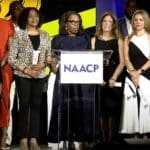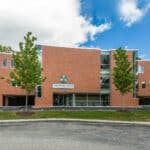Affirmative action has once again been thrust into the national spotlight. In 2008, Abigail Fisher, a young, white Texas resident, took the University of Texas to court, claiming she was denied admission on the basis of her race. Her case reached the Supreme Court this year.
Even though the Court upheld the practice of race-conscious admissions in 2003, more conservative justices sit on the bench now than nine years ago, a sign that the future of affirmative action may be in peril.
One of the Court’s staunchest opponents of affirmative action has been Clarence Thomas, who has invoked his own life experiences as a challenge to the practice. After graduating from College of the Holy Cross and Yale Law School — affirmative action played a role in his admission to both — Thomas set out to find a job. But, “one high-priced lawyer after another treated me dismissively … unsubtly suggesting that they doubted I was as smart as my grades indicated,” he wrote in his memoir, “My Grandfather’s Son.” “Now I knew what a law degree from Yale was worth when it bore the taint of racial preference. I was humiliated — and desperate. The snake had struck.”
While Thomas looks back at this experience with regret — a view that will most likely lead him to again vote against the admissions policies that once helped him — “Fraternity,” a new book by Diane Brady, tells the story of affirmative action another way.
In 1968, just weeks after Dr. Martin Luther King Jr. was assassinated, an intrepid white theology professor at Holy Cross drove around the country, trying to recruit African American men to his college. Father John Brooks shared King’s vision of racial equality, and felt that bringing more black students to Holy Cross would be his way of continuing the fight. Before then, Holy Cross only accepted two black students each year.
That fall, Brooks brought 20 African American students on full scholarship to the prestigious men’s college in Worcester, Mass., giving away $80,000 of the school’s $1 million endowment to do so. And that first cohort flourished. Among the entering class of 1968 were Eddie Jenkins, who went on to win a Super Bowl with the Miami Dolphins in the NFL’s only perfect season; Edward P. Jones, who later won a Pulitzer Prize in literature; Theodore Wells, now one of the most successful defense attorneys in the country who has represented former New York governor Eliot Spitzer and former vice presidential adviser Scooter Libby; Stanley Grayson, a Wall Street investment banker; and Clarence Thomas, who was accepted as a transfer student after he dropped out of a Catholic seminary in Missouri.
“It’s about the power of opportunity,” Brady said of “Fraternity,” noting that most of the men would not have been able to attend an elite college if it hadn’t been for Brooks. While the priest acted as a mentor to the students, and stood up for them when they asked the college for certain concessions — such as a van to drive off-campus to meet other black students, and the designation of a “black corridor” in one of the dorms — Brooks never lowered their academic standards.
“It is about the influence on many can have,” said Brady, “but it’s also about a group of men who seized an opportunity and changed Holy Cross for the better.”
“One thing you notice is that they were hard workers,” the author continued, “especially Wells and Thomas — they were in the library every night until the lights went off. So whatever opportunity they got, they certainly made the most of it. It wasn’t about getting handouts.”
Eddie Jenkins, who graduated from Suffolk Law School in Boston after his stint in the NFL, explained that the “relationships that were built” at Holy Cross aided his professional success.
Jenkins is now the chief of diversity and civil rights officer for the Massachusetts Department of Transportation, and lives in Roxbury.
“Within the isolated campus, we were able to build what I thought was a pretty strong black community of people who shared the same principles, shared the same ideas, shared the same dreams,” he said. “It allowed me to make the adjustment into this powerful America that I was trying to bridge in to.”
Holy Cross launched many of these men into successful careers, but Brady also shows how the men influenced their college.
By the end of 1969, anti-war protests were erupting across the country, and Worcester was no different. When General Electric came to Holy Cross for a recruitment visit, black and white students organized a protest of the company’s role as a weapons manufacturer and interrupted on-campus job interviews.
The administration cracked down, and suspended 16 students for the rest of the academic year. Four of the five black students at the protest were suspended, even though none of them were organizers.
Black students saw racism in the suspension — they had only been targeted because they were easily identified, and while only 20 percent of the white students had been penalized, 80 percent of the black students were. In protest, all of the black students decided to walk out of Holy Cross — permanently.
Even Thomas, who had his sights set on law school, packed his bags, expecting to leave campus forever. But after a few days, the administration gave in, and reversed the suspensions of all 16 students, black and white.
“Holy Cross was richer for having had these men there,” Brady said.
Today, the college is co-ed and boasts a student body in which 25 percent are African American, Latino, Asian American or Native American.
“The environment and commitment that was brought to bear by Father Brooks certainly continues throughout the college’s existence,” said Mable Millner, assistant dean of students and director of multicultural education at Holy Cross. “We’re hoping that diversity and inclusiveness become a natural part of who we are.”
For Jenkins, “Fraternity” goes beyond Holy Cross. “It has energized not only me, but a lot of my classmates and contemporaries who were part of the struggle for civil rights back in the 1970s,” he said. “It has allowed us to take a measure of how far we have come in that struggle — so it’s a new dialogue between people of that era and people of today.
Jenkins went on, “Our message to them is that we don’t want to be a monument of success — we actually have a living message that you can adopt. Some of those things are the hard work and the discipline and coming together as community in order to forge a powerful union together.”






